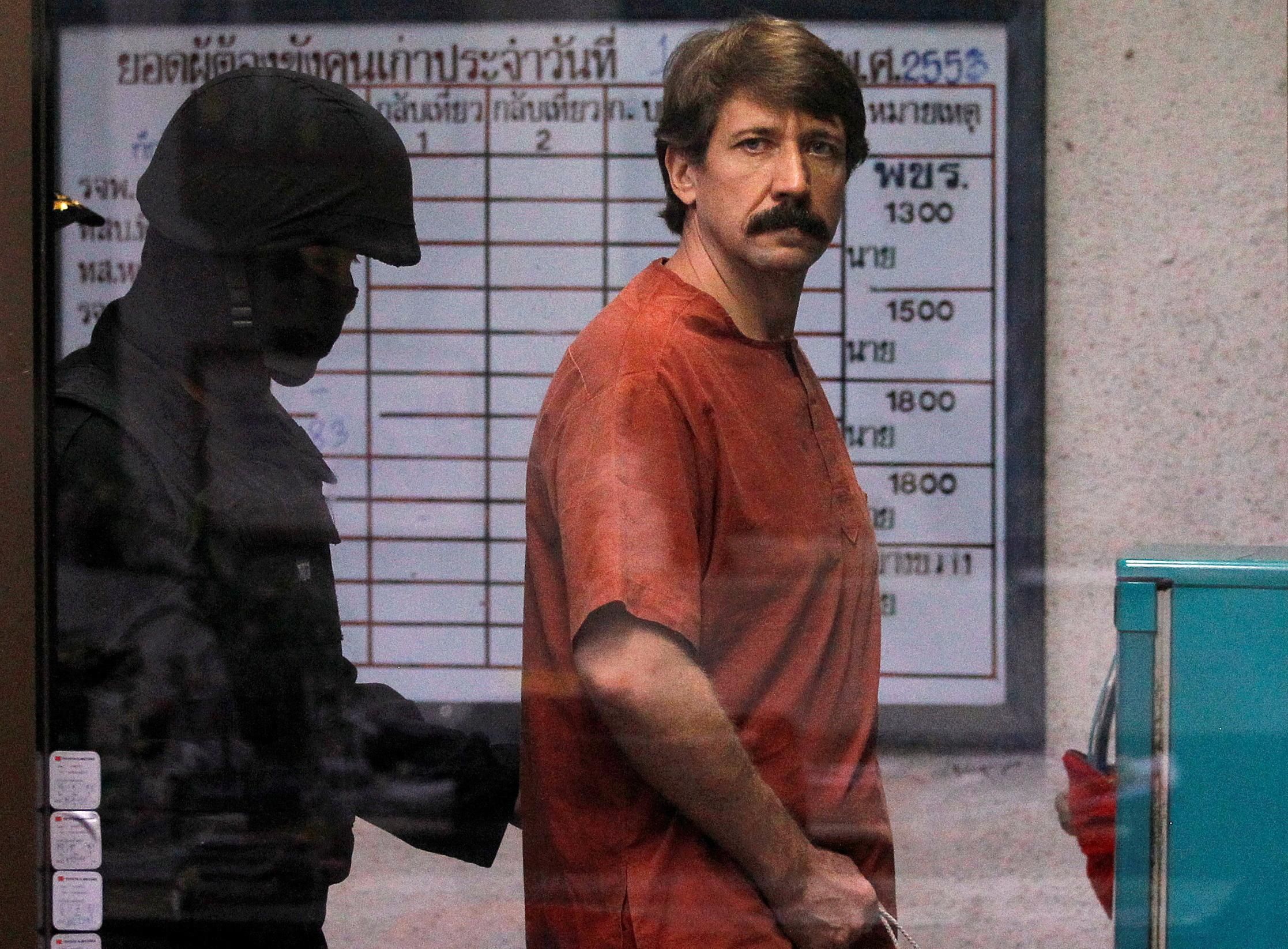WNBA star Brittney Griner has now landed in the United States after Russia agreed to free her from a nine-year prison term for drug possession in exchange for Viktor Bout, a Russian citizen and notorious arms dealer known as the "Merchant of Death." Who is he, and why is he worth so much to Moscow that Vladimir Putin agreed to trade such a prized bargaining chip as Griner to get him back?
This dude is perhaps the GOAT of weapons traffickers — even inspiring a (not-so-good) Hollywood film. A Russian national born in Soviet-era Tajikistan, Bout cut his teeth selling old Antonov and Ilyushin airplanes, which offered a bumpy ride yet were perfect for dirt airstrips across conflict-ridden parts of Africa. He later branched out into weapons, becoming the go-to arms dealer for both tin-pot dictators and the rebel groups fighting them.
Couldn't pay in cash? No problem, he accepted blood diamonds. No paperwork? No worries, Bout forged end-user certificates for a fee. Al-Qaida? No way, although he once claimed he flew weapons to Afghanistan in the mid-’90s to fight the Taliban.
In his heyday in the mid-2000s, Bout was the world's top gun-runner. His web of supply routes sourced weapons and ammo from cash-hungry and corrupt former Soviet Bloc states and sent them to war-torn African nations like Angola, Liberia, or Sierra Leone.
Bout got busted in 2008 by American DEA agents masquerading as Colombian FARC buyers in a glitzy Bangkok hotel. Following a lengthy trial, two years later Thailand extradited him to the US, where in 2012 he got 25 years on multiple charges.
What has made Bout so valuable to Russia? His silence.
Since he’s been on US soil, the Merchant of Death has clammed up. Whatever the Feds have tried, he hasn't given them even a nugget of all of the valuable intel he gathered for years while building his global arms-trafficking empire.
Someone who likely had Charles Taylor, Liberia’s former warlord-turned-president, on speed dial probably knows way too much about who illegally bought and sold weapons around the world for more than two decades. And for Putin, ensuring that Bout keeps all that to himself forever is certainly worth one Griner.More For You
Most Popular
Think you know what's going on around the world? Here's your chance to prove it.
20: The number of fallen Ukrainian athletes and coaches depicted on a Ukrainian skeleton racer’s helmet at the Winter Olympics, which prompted the International Olympic Committee (IOC) to disqualify him on Thursday.
The Russian government has begun blocking the popular messaging apps WhatsApp and Telegram in a sweeping crackdown aimed at forcing Russians to use a state-backed alternative called MAX, which critics say would enable censorship and surveillance.
